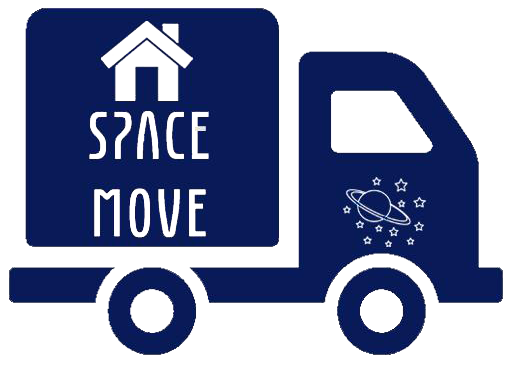Maximizing the Benefits of Moving Services for Your Business Relocation
Factors to Consider Before Moving Your Business
- Location: Evaluate the new location in terms of proximity to customers, suppliers, and workforce. Consider the accessibility and visibility of the new location for your business.
- Costs: Calculate the total cost of the move, including lease or purchase of new space, equipment transportation, and potential downtime. Create a detailed budget to avoid any financial surprises.
- Space Requirements: Ensure that the new space meets your current and future business needs. Consider factors like office layout, storage capacity, and potential for expansion.
- Infrastructure: Check if the new location has the necessary infrastructure for your business operations, such as internet connectivity, phone lines, and utility services.
- Legal Requirements: Familiarize yourself with the legal regulations in the new location, including zoning laws, business permits, and tax implications. Ensure compliance to avoid any disruptions.
- Employee Impact: Consider how the move will affect your employees, including commute times, potential relocations, and any disruptions to their work routine. Open communication is key.
- Client Accessibility: Evaluate how the move will impact client accessibility. Consider factors like parking availability, public transportation options, and overall convenience for clients.
- Timeline: Establish a realistic timeline for the move, taking into account factors like packing, transportation, and office setup. Ensure minimal disruption to your business operations.
- Moving Services: Research and choose a reliable moving company with experience in commercial moves. Get quotes, check reviews, and ensure they can meet your specific business needs.
- Contingency Plan: Have a contingency plan in place to address any potential challenges or delays during the move. Prepare for unexpected issues to minimize disruptions to your business.
Choosing the Right Location for Your Business
When considering a new location for your business, it is crucial to assess several factors to ensure a smooth transition and continued success. Here are some key points to consider when choosing the right location for your business relocation:
- Identify Your Needs: Evaluate your business requirements such as space, accessibility, target market proximity, and infrastructure needs.
- Demographics: Study the demographics of the area to determine if it aligns with your target customer base. Understanding the population, income levels, and consumer behaviors is essential.
- Competition: Analyze the competitive landscape in the new location. Consider proximity to competitors, market saturation, and potential collaborations with neighboring businesses.
- Accessibility: Ensure easy access for both customers and employees. Evaluate transportation options, parking availability, and proximity to major roads or public transportation hubs.
- Cost Considerations: Calculate the overall expenses associated with the new location, including rent, utilities, taxes, and any additional costs specific to the area.
- Future Growth: Anticipate the future needs of your business. Select a location that allows for scalability and expansion as your business grows.
- Regulations and Permits: Research local regulations, zoning laws, and required permits for operating a business in the chosen location to avoid any legal issues.
- Careful consideration of these factors will help you choose a location that aligns with your business goals and sets the stage for a successful relocation.
Legal and Regulatory Considerations
When planning a business relocation, it is crucial to carefully consider the legal and regulatory aspects to ensure a smooth transition. Here are some key points to keep in mind:
- Lease Agreements: Review the terms of your current lease agreement to understand your rights and responsibilities regarding the move. Consider consulting with a real estate attorney to ensure compliance with lease terms.
- Permits and Licenses: Check if you need any new permits or licenses for your new location. Different areas may have varying requirements, so it’s essential to be aware of and adhere to local regulations.
- Employee Regulations: Inform employees about the relocation process and any changes in their work environment. Be mindful of labor laws and regulations that may affect the relocation, especially regarding employee rights and benefits.
- Data Privacy and Security: Safeguard sensitive data during the move to protect your business and client information. Ensure compliance with data protection laws and take necessary precautions to prevent data breaches.
- Insurance Coverage: Review your insurance policies to ensure coverage during the relocation period. Consider additional coverage for potential risks associated with the move, such as property damage or business interruption.
- Vendor Contracts: Communicate with vendors and service providers about the relocation to avoid disruptions in essential services. Review contracts to understand any relocation-related clauses or obligations.
It is essential to seek legal advice from professionals familiar with business relocations to navigate the legal and regulatory landscape effectively. By addressing these considerations, you can mitigate risks and ensure a successful transition for your business.
Financial Planning for the Move
Conduct a Cost-Benefit Analysis:
Evaluate the expenses associated with the move, including hiring moving services, lease agreements, equipment transportation, and potential downtime. Compare these costs with the expected benefits post-relocation such as increased productivity, access to a larger market, or cost savings.
Allocate a Budget:
Create a detailed budget that outlines all moving expenses. Include costs for packing materials, labor services, transportation, and any unforeseen expenses. Ensure that funds are also allocated for potential delays or additional requirements.
Seek Competitive Bids:
Request quotes from multiple moving companies to compare prices and services offered. Look for reputable movers with experience in handling commercial relocations. Negotiate prices and discuss any special requirements or accommodations needed for your business move.
Consider Financing Options:
If the move requires significant capital investment, explore financing options such as business loans, lines of credit, or leasing agreements. Determine the most cost-effective and manageable way to fund the relocation while considering the impact on cash flow and business operations.
Review Insurance Coverage:
Ensure that your business property and assets are adequately insured during the move. Confirm coverage for potential damages, losses, or liabilities that may occur during transportation or while in transit. Update insurance policies as needed to safeguard against unforeseen circumstances.
Monitor Expenses and Adjust:
Track moving expenses closely throughout the relocation process. Compare actual costs with the budgeted amounts and adjust financial plans as needed. Stay proactive in managing finances to prevent overspending and address any financial challenges promptly.
Communicating with Stakeholders
Effective communication with stakeholders is crucial during a business relocation to ensure a smooth transition. Here are some key points to consider:
- Identify Key Stakeholders: Begin by identifying all the stakeholders who will be impacted by the move. This may include employees, clients, suppliers, investors, and the local community.
- Create a Communication Plan: Develop a detailed communication plan that outlines how and when you will communicate with each stakeholder group. Consider using various channels such as email, meetings, newsletters, and social media to reach out effectively.
- Set Clear Expectations: Clearly communicate the reasons for the relocation, the timeline, and the expected outcomes. Address any concerns or questions that stakeholders may have, and be transparent about the process.
- Provide Updates Regularly: Keep stakeholders informed throughout the relocation process with regular updates. This helps build trust and minimizes uncertainty.
- Listen to Feedback: Encourage stakeholders to provide feedback and address any issues or concerns promptly. Acknowledge their input and involve them in decision-making when appropriate.
- Celebrate Milestones: Recognize and celebrate milestones achieved during the relocation to maintain morale and motivation among stakeholders.
- Offer Support: Provide support to employees who may be impacted by the move, such as assistance with relocation, flexible work arrangements, or access to counseling services.
By effectively communicating with stakeholders throughout the relocation process, you can minimize resistance, build trust, and ensure a successful and smooth transition for your business.
Logistics and Operations during the Transition
- Plan and coordinate the logistics of the move well in advance to ensure a smooth transition for your business.
- Create a detailed timeline outlining key milestones and tasks to be completed during the relocation process.
- Consider hiring professional movers who specialize in commercial relocations to handle the physical aspects of the move.
- Communicate regularly with employees to keep them informed about the relocation process and address any concerns they may have.
- Update important stakeholders such as clients, vendors, and service providers about your upcoming move to minimize disruptions to business operations.
- Implement a system for safely packing and labeling items to ensure that everything is organized and easily accessible after the move.
- Arrange for any necessary permits or approvals for the relocation to avoid any delays or issues on moving day.
- Set up a contingency plan in case of unforeseen challenges or hiccups during the transition period.
- Conduct a final walkthrough of the old and new locations to confirm that everything has been properly moved and set up according to plan.
By paying careful attention to the logistics and operations during the transition phase of your business relocation, you can minimize disruptions, keep employees informed, and ensure a successful move that sets your business up for continued success in its new location. Spacemove Kenya is a Kenyan Moving partner for seamless moving.




